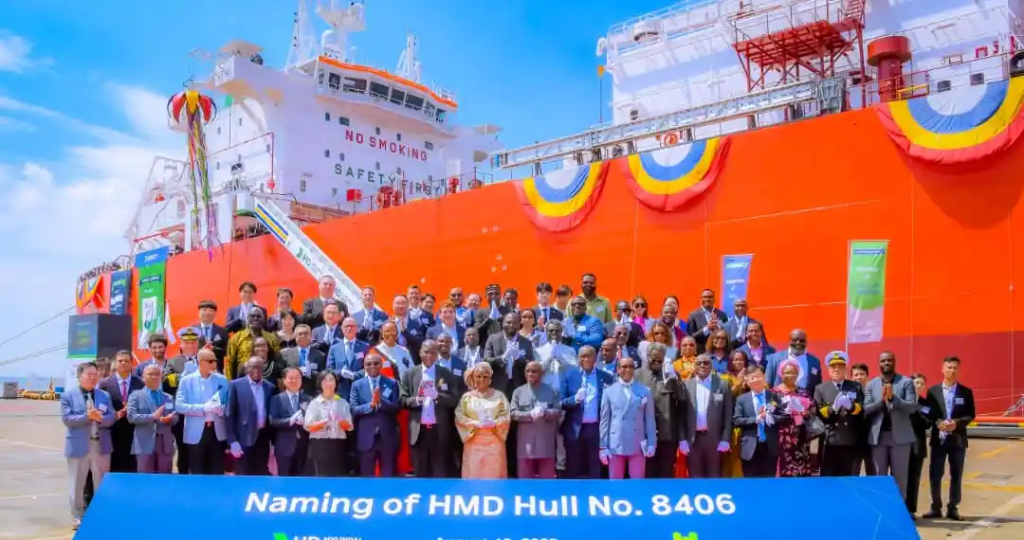
President Bola Ahmed Tinubu on Monday commissioned a 40,000 cubic meters (CBM) Liquefied Petroleum Gas (LPG) vessel, christened “MT Iyaloja (Lagos),” in Ulsan, South Korea.
The vessel, owned by WAGL Energy Limited (a joint venture between NNPC Ltd and Sahara Group), is a dual-fuel, fully refrigerated LPG carrier designed to enhance Nigeria’s gas transportation and distribution capacity. With this addition, WAGL’s total LPG vessel capacity rises to 162,000 CBM.
Speaking at the commissioning, President Tinubu, represented by the Minister of State for Petroleum Resources (Gas), Ekperikpe Ekpo, said Nigeria is committed to delivering clean and sustainable energy solutions both domestically and across Africa.
He commended WAGL Energy, NNPC Ltd, and Sahara Group for their “strategic foresight, technical excellence, and unwavering dedication to expanding Africa’s role in the global clean energy value chain.”
Other vessels in the fleet include MT Africa Gas, MT Sahara Gas, MT BaruMK, and MT Sapet, with WAGL planning to further expand within the next two years by adding a Small Gas Carrier and a Very Large Gas Carrier (VLGC).
NNPC Ltd’s Group CEO, Bayo Ojulari, represented by Olalekan Ogunleye, Executive Vice President for Gas, Power & New Energy, described the vessel as crucial for unlocking the role of gas in Nigeria’s economic growth.
“NNPC Ltd is proud to be a major shareholder in this indigenous company, which, in addition to MT Iyaloja (Lagos), owns four other LPG vessels that have delivered over six million metric tonnes of LPG across West Africa in the last five years,” he said.
Temitope Shonubi, Executive Director of Sahara Group and Chairman of WAGL, said the expansion reflects the company’s vision of bridging Africa’s energy infrastructure gap responsibly.
“The addition of MT Iyaloja (Lagos) embodies the spirit of progress and empowerment championed by the iconic Alhaja Abibatu Mogaji, whose legacy we honour,” he added.
Mohammed Sani Bello, WAGL’s Managing Director, reaffirmed the company’s dedication to expanding its integrated supply network across the entire energy value chain, ensuring wider energy access.
The commissioning highlights Nigeria’s clean energy transition drive under Tinubu’s administration, positioning gas as a critical enabler of sustainable economic growth and energy access across Africa.